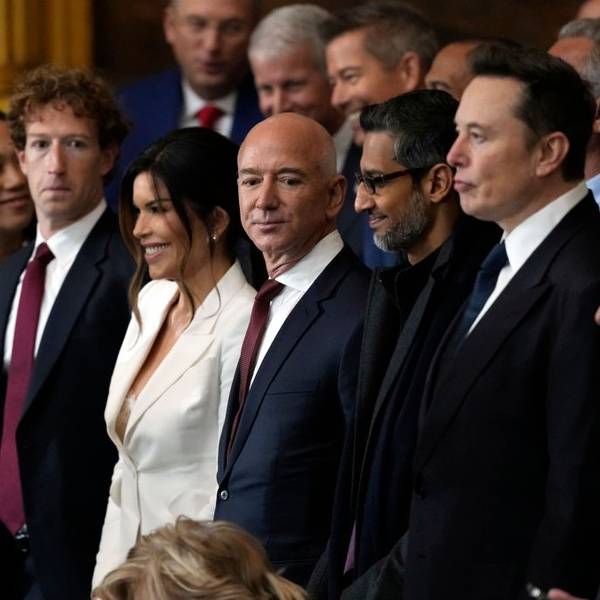In a move commentators characterized as a "promising" step in the direction of regulating and reining in large and powerful tech firms, the European Commission on Tuesday slapped Google with a $2.7 billion fine for violating antitrust rules and "abus[ing] its market dominance."
"American antitrust authorities are so pathetic as to be irrelevant."
--Matt Stoller, New AmericaSpecifically, the commission noted in a press release, Google was penalized for using its leverage to give "an illegal advantage" to its own shopping service, which had the effect of boxing out potential competition.
Matt Stoller, a fellow at New America's Open Markets Program, responded by saying that the EU's decision to take action against Google provides a stark contrast to the inaction of American regulators, who have in recent years done relatively little to prevent large companies from merging and drowning out competitors.
"This $2.7 [billion] fine is not a parking ticket for Google," Stoller wrote. "It opens the door to civil suits. And Google has to change its behavior."
Leadership on curbing monopoly power has been in Europe, not the U.S., "for some time," Stoller added. "American antitrust authorities are so pathetic as to be irrelevant."
The fine--the largest ever leveled against a single company by the EU in an antitrust case--marks the end of a seven-year investigation into Google's practices.
The commission further explained its decision:
The Commission Decision does not object to the design of Google's generic search algorithms or to demotions as such, nor to the way that Google displays or organises its search results pages (e.g. the display of a box with comparison shopping results displayed prominently in a rich, attractive format). It objects to the fact that Google has leveraged its market dominance in general internet search into a separate market, comparison shopping. Google abused its market dominance as a search engine to promote its own comparison shopping service in search results, whilst demoting those of rivals.
"What Google has done is illegal under [European Union] antitrust rules. It denied other companies the chance to compete on the merits and to innovate. And most importantly, it denied European consumers a genuine choice of services and the full benefits of innovation," said European Commissioner for Competition Margrethe Vestager in a statement.
In an op-ed for the Guardian, journalist Nils Pratley echoed Stoller's argument.
The E.U. regulators' "consumer-friendly action...should be applauded," he wrote, adding that the move could have "far-reaching consequences."
"The wonder is that U.S. regulators, who once upon a time had an honourable record of acting against powerful monopolists, have been so supine with the technology giants," Pratley concluded.




